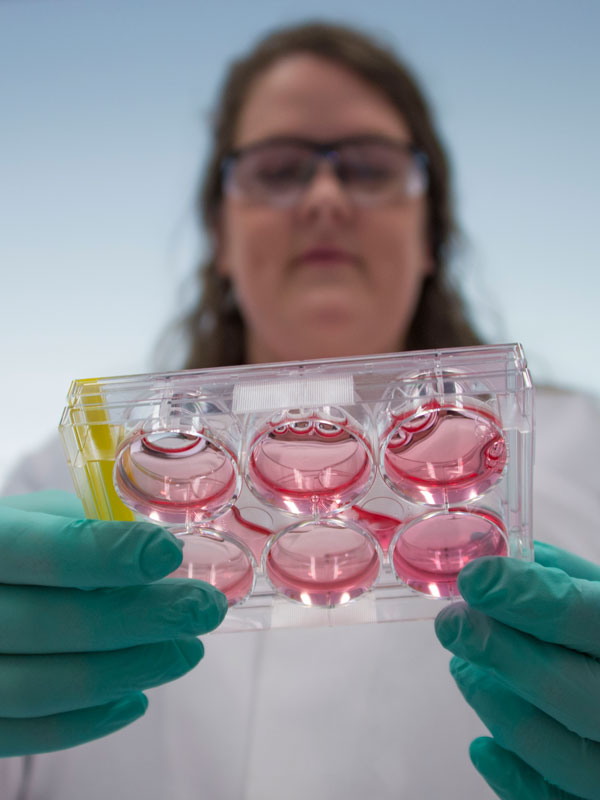How did you first get involved with food allergy research?
For many years, one of the main focuses of our larger research group has been on the development of vaccine adjuvants or substances added to vaccines to boost the body’s immune response. I began studying a nanoemulsion vaccine adjuvant that was developed here at Michigan and has been developed to be delivered intranasally, through a needle-free nasal spray.
Through the course of this work, we noticed that the type of immune response induced by nanoemulsion vaccines is directly the opposite of the responses that drive food allergy. This led us to investigate if we could use the nanoemulsion to create vaccines that could turn off allergic immunity.
What results have you found so far?
Our results so far have been very exciting. We have demonstrated that the vaccine we are studying, which is composed of the nanoemulsion formulated with the food allergen, can redirect established allergic immune responses and prevent subsequent allergic reactions in a few mouse models of food allergy.
Our results demonstrate that we are able to suppress established allergy, so it should work regardless of how long a patient has had the allergy or how old they are. Once we performed the proof-of-concept studies showing that our vaccine could work, we have been focused on determining how it works.
We had a paper that was published earlier this year where we investigated the mechanism by which this vaccine works to suppress allergic immunity. We found one particular molecule that is critical for the mediation of this protection, but there are still quite a lot of other steps of the pathway that we are still investigating.
Why is this area of research important to the field of food allergy and how is it making a difference?
While there are therapeutics currently showing promise in clinical trials, so far nothing has been shown to work for all food allergies and all patients. If we compare the vaccine that we are developing with the things on the horizon in clinical trials for food allergy, what we are doing is completely different. Unlike immunotherapies that require daily exposure for years, we’re demonstrating that just a few doses of the vaccine can change the immune response and protect for quite a long time.
From a patient standpoint — if we can get to that point — this would mean an easier therapeutic, requiring fewer visits to the clinic. You would think of it more like what you think of for a traditional vaccine, where you have to go to your physician’s office for your booster immunizations — but they would be months apart, not every single day.

